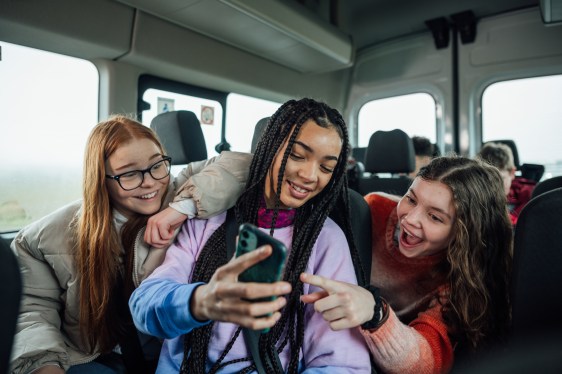Posted: 4:48 PM PST · November 6, 2024
Australian Prime Minister Anthony Albanese announced plans on Wednesday to ban social media for children under the age of 16. The proposed legislation will enter parliament this year and take effect a year after lawmakers ratify it.
A Call to Action
Albanese stated that "social media is doing harm to our kids, and I’m calling time on it." This move comes as part of Australia’s efforts to address the growing concerns about social media’s impact on children’s mental health and well-being. The ban will apply to all social media platforms, including Instagram, Facebook, TikTok, X (formerly Twitter), and YouTube.
No Exemptions for Parental Consent
The proposed legislation will make no exceptions for parental consent. This means that social media companies will be responsible for preventing access by children under the age of 16. The onus is on these platforms to implement measures to prevent underage users from signing up or accessing their services.
A Global Trend
Australia’s approach is among the strictest globally, but numerous other countries are moving in a similar direction. Norway’s Prime Minister recently announced plans to enforce an age limit of 15 for social media use, up from the current age limit of 13. The Norwegian government believes that it needs to more aggressively campaign against profit-driven tech companies that are "pitted against small children’s brains."
Why the Need for a Ban?
The decision to ban social media for kids under 16 is based on growing concerns about its impact on their mental health and well-being. Research has shown that excessive social media use can lead to increased rates of depression, anxiety, and loneliness among young people.
Social media companies have been criticized for their role in perpetuating these issues. Many have implemented measures to reduce the spread of misinformation and hate speech, but critics argue that more needs to be done to protect children from the potential harms of social media.
The Role of Social Media Companies
As social media companies bear the responsibility for preventing access by children under 16, they will need to implement robust measures to ensure compliance with the new legislation. This may include:
- Age verification: Implementing age verification processes to prevent underage users from signing up or accessing their services.
- Content moderation: Improving content moderation practices to reduce the spread of harmful or inappropriate content.
- Parental controls: Providing parents and guardians with tools to control and monitor their children’s social media use.
International Cooperation
The decision by Australia and Norway to implement age limits on social media use highlights the need for international cooperation on this issue. Other countries, such as the UK and Canada, have also implemented measures to address concerns about social media’s impact on children.
As governments around the world grapple with the challenges posed by social media, it is clear that a collaborative approach will be necessary to ensure the protection of children’s rights online.
Conclusion
The proposed ban on social media for kids under 16 in Australia marks an important step towards addressing concerns about its impact on their mental health and well-being. As governments around the world grapple with this issue, it is essential that they prioritize the protection of children’s rights online.
Social media companies must also take responsibility for preventing access by underage users and implementing measures to reduce the spread of harmful or inappropriate content. By working together, we can create a safer and more responsible online environment for all.



